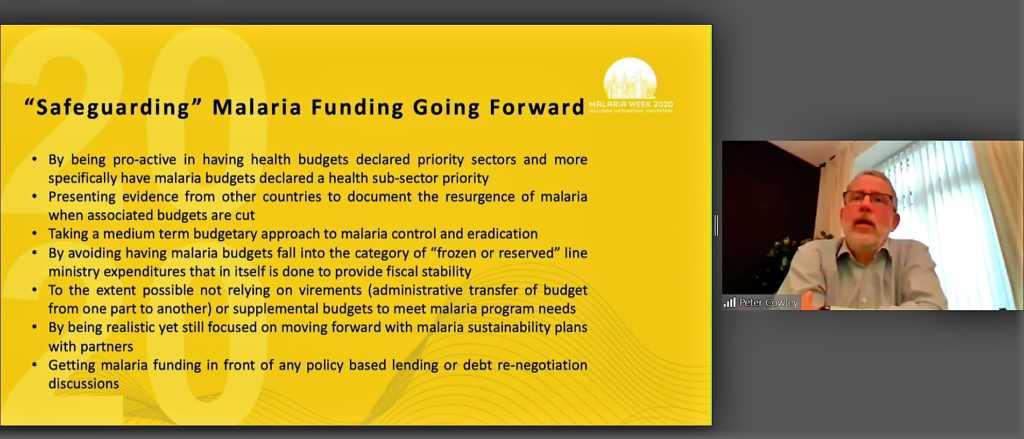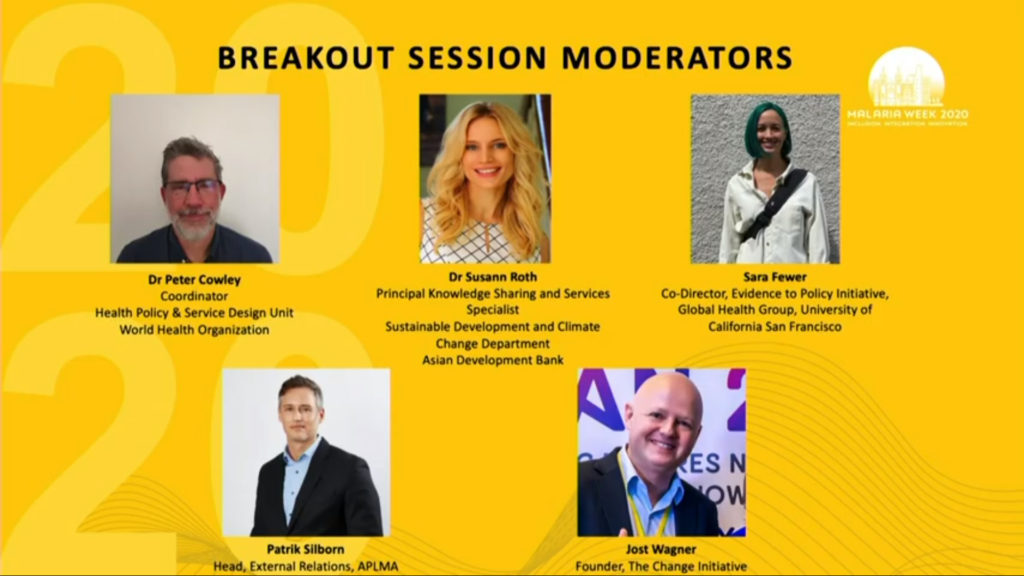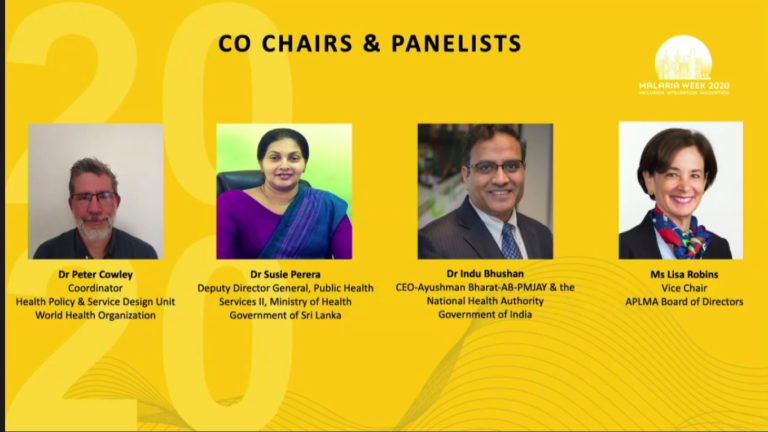Co-hosted by APLMA, Ministry of Health Sri Lanka and World Health Organization (WHO), the third day of Malaria Week 2020 covered the critical issue of how to sustain financing for the last mile of malaria elimination.
Discussions centred on the impact of Covid-19 on government budgets and how reduced finances for malaria may jeopardize the elimination goal. Participants also looked forward, identifying actions that can help sustain health and malaria financing in these challenging times.
THE CURRENT SITUATION
Underpinned by large increases in financing, countries have made great progress in the fight against malaria. For instance, the Greater Mekong Subregion – a region comprising Viet Nam, Thailand, Myanmar, Lao PDR and Cambodia – has seen an 80% reduction in cases and a 95% reduction in deaths since 2012. India reported the largest reduction in cases among the global high-burden countries (49% in 2018 alone).
Yet progress is uneven; and some countries have encountered the opposite trajectory. In addition, the COVID-19 pandemic has led to a global recession, leading to a double crunch: reduced government revenues and increased expenditures.
“Due to the decline in revenue and expenditure shocks, Ministries of Finance will be looking for efficiencies in spending. We need to ensure they know that malaria elimination is a sound investment with medium-term outcomes”
Dr Peter Cowley, World Health Organization Western Pacific
Dr Peter Cowley, Dr Susie Perera and Dr Indu Bushan started the session by sharing their thoughts on the pandemic; how critical it is to defend malaria and health financing; and some of the arguments and actions we can take as a community to support resource mobilization.
“It’s a very very decisive moment. Some of our countries have made significant progress but we must face the reality that we are in uncertain times and there are some critical decisions that have to be made by governments. Covid-19 is taking an exceptionally heavy toll on people’s lives but we really cannot ignore the other communicable diseases. It’s important to come up with strategies to sustain the funding and to make the money last longer.”
Dr Perera, Ministry of Health, Sri Lanka

What can we do as a community to sustain health and malaria financing during this critical period?
Dr Indu Bhushan, CEO of Ayushman Bharat, the world’s most ambitious Social Health Insurance Scheme aiming to cover 500M people with access to health services, shared his four key factors to help sustain financing:
- Disruption – A public health crisis highlights the importance of strong health systems. Past crises like the SARS and MERS outbreak led to greater investment in health. The same may be true for COVID-19. However, a major challenge is the economic crisis unleashed by the pandemic.
- Champions – Having champions who lead the charge of health investments is important.
- Success – Demonstrating value for money, and that investments lead to results is critical.
- Innovation – By innovating and finding new solutions to old problems, the health community can make a more convincing argument to policy makers.

Five breakout groups continued this line of thinking, with broad ranging conversations on how we can make a case for sustained, or indeed increased, financing.
There was agreement that as a community, we must
- Support the integration of vertical malaria programs, and strengthen community health systems. This is critical, not only because it will help sustain critical malaria services and put the patient in the center, but it can also help achieve efficiency gains that are much needed in a time of recession.
- Advocate for making health and malaria financing a budget priority;
- Make the case for continued health and malaria financing, by showing results and using funding effectively;
- Help sustain the political commitment to elimination;
- Defend critical malaria budget lines, and prioritize key actions.
If we fail, we risk wiping out years of progress and investments. The recommendations from the event will feed into the Senior Officials Meeting, where priority financing action will be agreed for the next 12 months.
For more information and resources, please visit www.malariaweek.org. To access the recording of the session: https://youtu.be/BwOTfm2iV-Y

